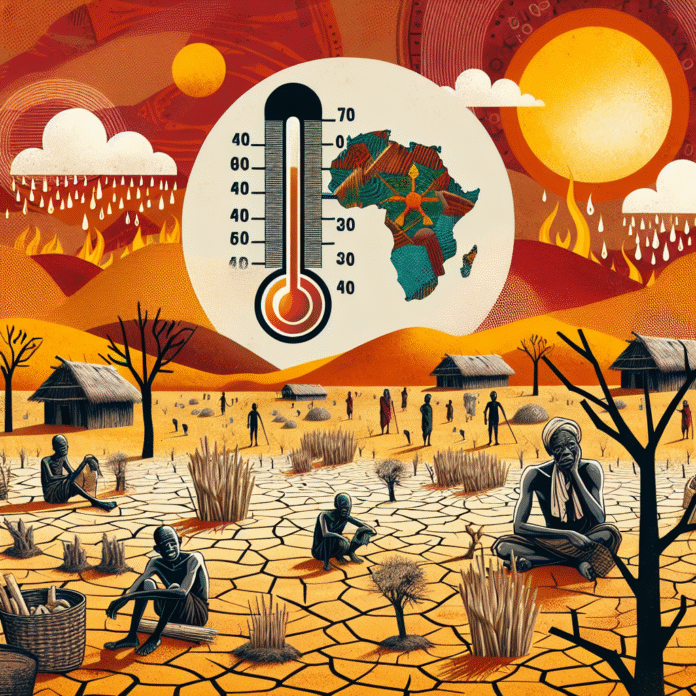Africa’s Food Future Threatened by Climate and Conflict
African Food Security Threatened by Climate Change and Conflict
As Africa grapples with the dual challenges of climate change and ongoing conflicts, the continent’s food security hangs in the balance. The convergence of these two crises poses significant risks to agriculture, livelihoods, and overall stability in many regions.
The Impact of Climate Change on Agriculture
Climate change is having a profound effect on African agriculture, which is predominantly rain-fed and heavily reliant on predictable weather patterns. Rising temperatures, erratic rainfall, and prolonged droughts are diminishing crop yields and threatening food production. For instance, the Intergovernmental Panel on Climate Change (IPCC) reports that by 2030, agricultural productivity in some African countries could decrease by as much as 30% due to climate-related factors.
Farmers are already facing challenges such as soil degradation, pest invasions, and water scarcity. Smallholder farmers, who make up the majority of the agricultural workforce in Africa, are particularly vulnerable. They often lack access to resources, technology, and information that could help them adapt to changing conditions. Innovative agricultural practices, including drought-resistant crops and sustainable farming techniques, are essential for building resilience in these communities.
Conflict as a Catalyst for Food Insecurity
In addition to climate change, armed conflicts across the continent exacerbate food insecurity. Areas affected by violence often see a breakdown in agricultural production and supply chains. Farmers may be unable to access their lands, and markets can become inaccessible, leading to increased food prices and shortages.
Countries such as South Sudan, the Democratic Republic of the Congo, and Ethiopia have experienced significant disruptions to their food systems due to ongoing violence. Displacement of populations further compounds the issue, as millions of people are forced to abandon their homes and livelihoods. The United Nations estimates that over 250 million people in Africa will face severe food insecurity by 2025 if these conflicts persist.
The Role of Policy and International Cooperation
Addressing these intertwined challenges requires a concerted effort from governments, local communities, and international organizations. Policymakers must prioritize sustainable agricultural practices and develop strategies for conflict resolution and peace-building. Investment in infrastructure, such as irrigation systems and storage facilities, can help mitigate the impacts of climate change while also enhancing food security.
Furthermore, international cooperation is essential. Global partnerships can provide the financial and technical support needed to help African nations adapt to climate change and recover from conflict. Initiatives aimed at promoting regional trade and food systems can also bolster resilience against future shocks.
The Path Forward
The future of food security in Africa hinges on our ability to address the challenges posed by climate change and conflict. By fostering sustainable agricultural practices, investing in technology and infrastructure, and promoting peace and stability, we can create a more secure food future for millions across the continent. It is imperative that all stakeholders come together to find innovative solutions to these pressing issues, ensuring that Africa’s rich agricultural potential is harnessed for the benefit of its people.


